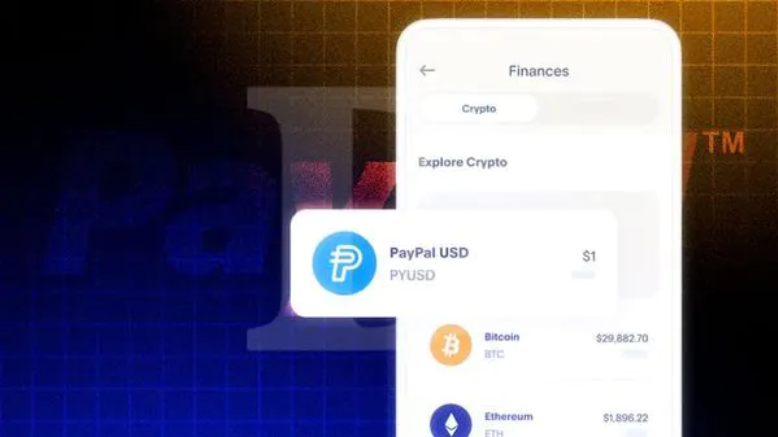By Owen Fernau
PayPal’s stock jumped after the payments giant announced it will launch a stablecoin on speculation crypto may help shore up the company’s financials.
Paypal’s shares jumped more than 2% today on the news that the company is launching an on-chain stablecoin. The crypto market. on the other hand, met the news with a muted response — ETH, the token necessary to transaction on Ethereum, moved less than a percentage point on the day.
Investors welcomed the news after the stock plunged 9% last week after the company’s Q2 earnings were released. The report revealed a second consecutive quarter of dropping operating margins. Operating margin is a key indicator of a company’s efficiency.
Profitable Stables
The launch of PYUSD comes as Tether, the company behind the crypto’s leading $83.7B stablecoin USDT, reported an eye popping $850M in profit last week — that’s within striking distance of PayPal’s $1.6B in operating income in Q2. And Tether actually topped PayPal in Q1 with a reported $1.5B in profit that quarter.
U.S. Treasuries, whose yields are at 22-year highs, are driving Tether’s profits and undoubtedly drawing eyeballs from the likes of PayPal.
Ethereum Blockchain
PYUSD, as the stablecoin is called, will roll out on the Ethereum blockchain to PayPal’s 431M active users. The firm advertised the stablecoin’s use in money transfers, for day-to-day purchases, and as a currency convertible to other digital assets. Stablecoins are cryptocurrencies whose value is usually pegged to the dollar, another fiat currency or a basket of assets.
PayPal will back PYUSD with “U.S. dollar deposits, short-term U.S. treasuries, and similar cash equivalents,” according to a press release.
Controversial Code
The crypto community is still grappling with the stablecoin’s feature which allows its owner to freeze and unfreeze the token in its holders’ accounts.
The co-founder of the gas optimization company Pop Punk, who goes by Harrison, wasn’t surprised by the implementation. “In my opinion the freeze and unfreeze is very standard with PayPal’s operating practices as well as many other large stablecoins that currently exist,” he told The Defiant.
Harrison added that PayPal was using a version of Solidity, a key programming language for blockchains, which launched in 2018. “It makes me think it was developed 5+ years ago and was just taken off the backburner,” they said.
Paypal did not respond to The Defiant’s request for comment about its implementation, including the company’s choice of Ethereum as a blockchain.
Competitive Environment
PSUSD’s launch comes as major DeFi protocols like Curve Finance and Aave have bothlaunched stablecoins this year.
The U.S. House Financial Services Committee also passed on a bill which would provide a clear framework for stablecoin issues to the House of Representatives two weeks ago.
Patrick McHenry, the chairman of the committee and author of the bill, applauded PayPal’s move.
“This announcement is a clear signal that stablecoins—if issued under a clear regulatory framework—hold promise as a pillar of our 21st century payments system,” he said in a statement released through the Committee’s website. “Clear regulations and robust consumer protections are essential to enabling stablecoins to achieve their full potential.”



